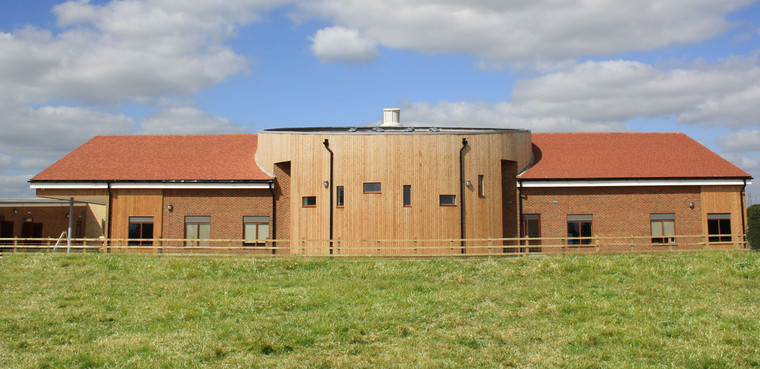Hadlow College has confirmed to South East Farmer that the dairy herd will go as the result of a review of its current farm enterprises and “an assessment on the level of investment that would be required over the next five years to maintain industry standards”.
Students will continue to learn about dairying thanks to a partnership with Bore Place, an organic dairy farm at Chiddingstone, near Edenbridge that already has a strong focus on education as well as on providing opportunities for vulnerable and disadvantaged young people.
South East Farmer columnist Alan West, who began his farming career milking 120 Friesians and lectured at the college for many years, was disappointed with the decision to abandon the herd. He said it would “leave a big hole in what the college is able to offer students”.
Alan explained: “Dairying is still a popular choice amongst students. It appeals to young people and there are some good jobs out there in dairy units. Dairy farmers who are doing the job properly are still making a margin and good herdsmen are in demand and can command a decent salary.
“Beef doesn’t have the same appeal, but the proposal will at least maintain some sort of cattle presence at the college. They have already lost pigs and poultry and this will again impact on the learning experience.”
Although Alan felt the switch to Bore Place, around half an hour away from the college by car, would make it more difficult for students to get involved in early morning milking duties, the college was quick to dismiss that particular concern.
A spokesperson pointed out: “The college operates sites throughout West Kent, North Kent and South East London and is very used to transporting students around, so therefore it is not an issue.”
Hadlow College Principal Lindsay Pamphilon’s earlier statement had pointed out that the college had been reviewing its enterprises over the past year “as part of its plans for the future”.
It went on: “The decision to conduct a review was motivated by the changes to the domestic agricultural policy following the United Kingdom’s departure from the European Union and the impending loss of direct payments (subsidies). The global pandemic and shifts in environmental perceptions have further hastened the College’s need to review the focus of the farm.
“We have considered all the farm enterprises collectively and individually. The review has sought to identify if an enterprise is financially effective, environmentally well prepared and delivering an industry standard experience to students.”
The statement said the beef herd would be “integrated with the sheep enterprise and form part of the College’s wider regenerative farming strategy that will help improve the environmental credentials of the farm and provide excellent learning for students.
“Sheep numbers will be increased and will be managed more extensively across the college farm using cover crops. The arable enterprise will introduce a greater breadth to its rotation with land freed by not producing as much forage. There will be a focus on integrating grazing regimes within the arable land.”
Ms Pamphilon’s statement said the college would explore innovative crops, “integrate technology to enhance student experience” and develop plans for field scale fruit production and viticulture. The changes, she said, would “allow the college to ensure our student experience is well prepared for the future changes in agriculture … and enable us to develop new learning experiences with an expansion of our cropping offer”.
After starting his career in dairying, Alan West studied for a National Diploma in Dairying and was involved with dairy cattle on a research farm when working in Saudi Arabia. As part of his role as extension and liaison officer for the project, he was consulted, and advised on, the design and establishment of several dairy units for local Sheiks and expatriate companies.
He questioned the college’s plans and was particularly concerned at the idea that suckler cows would be put into the existing dairy cubicles, which he said would be too large, resulting in the cows laying forward in the stalls and dirtying their sleeping area.
“The existing cubicles are designed for Holsteins and anyone who has ever had beef cattle wouldn’t think of using the same housing,” he said. “They will also have calves to care for, and I’m not sure where they are planning to put those.” Asked about the housing issue, the college spokesperson said Ms Pamphilon would respond on her return from leave. South East Farmer will report on that response in a future edition.




